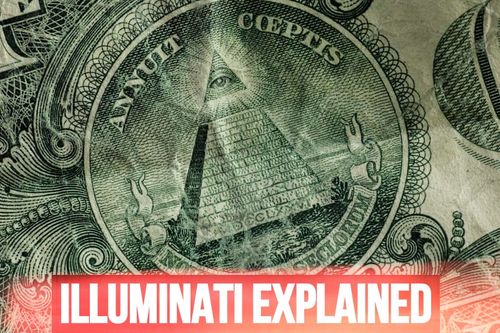What is the Illuminati? And does it still exist?
Mar 21, 2022 · 2 mins read
0
Share

In 1776, a German law professor named Adam Weishaupt grew increasingly frustrated that he couldn’t teach secular philosophy in an environment where the ideas of the Catholic Church interfered with public affairs.
Save
Share
Determined to rebel against the State, Weishaupt decided to take his teachings underground by starting a secret society called the Illuminati. Its mission was to shine a light on emerging concepts like religious freedom, human rights, and rationalism.
Save
Share
The Illuminati was partly inspired by another secretive society known as the Freemasons. What started out as a guild for stoneworkers during the Middle Ages gradually developed into an elite order that believed in sharing the power of knowledge on an exclusive basis.
Save
Share
Adam Weishaupt not only joined the Freemasons’ ranks of wealthy and influential members, but also began recruiting its scholars and politicians to join his club. Eight years after its formation, the Illuminati had attracted over 600 members.
Save
Share
As the Illuminati’s reputation grew, a revolution began in America as a young nation fought for its independence based on the same values that inspired the Illuminati. (Weishaupt was later credited as inspiration by Thomas Jefferson.) This alarmed Europe’s ruling powers.
Save
Share
Fear spread among European clergy and governments. They suspected that these kinds of ideals could seriously undermine authority and spark a revolution closer to home. The Bavarian government began paying closer attention to the Illuminati and its alleged members.
Save
Share
In 1874, the Bavarian Duke Karl Theodor officially made all secret societies illegal. Within a decade of the Illuminati’s formation, just as its members started ascending the ranks of public institutions, the group was no more.
Save
Share
Once the Illuminati’s records were intercepted, Adam Weishaupt’s writings were deemed too subversive by authorities. He lost his job as a university professor and fled into exile, settling in the German city of Gotha.
Save
Share
Following the French Revolution 10 years later, some maintained that the Illuminati had not only survived in secret but were responsible for toppling the French monarchy. This idea became a template of many conspiracy theories and endures to this day.
Save
Share
While many governments would be founded on similar ideals, there is zero evidence that the Illuminati survived or reformed. Some people refuse to believe this. What’s irrefutable, however, is that the tide of progression it once represented can still be felt today.
Save
Share
0